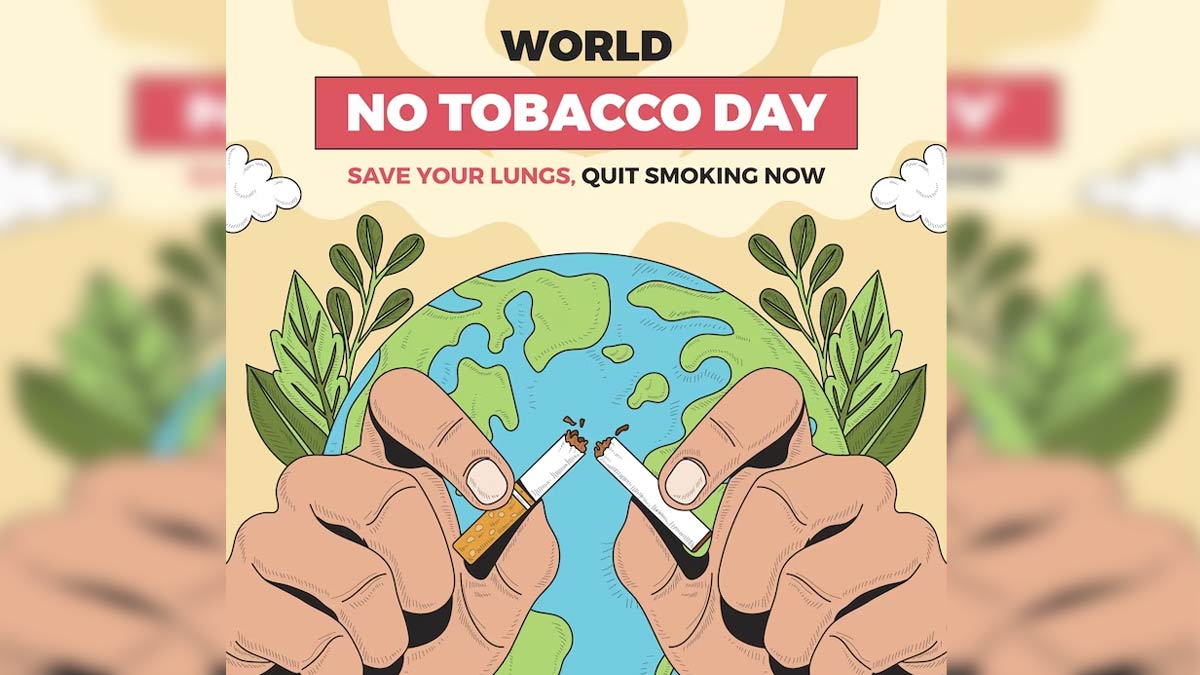
Tobacco is undeniably one of the leading causes of various types of cancer, posing a significant health threat worldwide. Its detrimental effects on health are well-documented, and its impact on the younger generation of India is particularly alarming. In recent years, India has witnessed an increase in tobacco consumption among young individuals, which has far-reaching consequences for public health.
Table of Content:-
On the occasion of World No Tobacco Day 2023, the editorial team on OnlyMyHealth spoke to Dr Sandhya Sood, Consultant – Radiation Oncology, American Oncology Institute, Ludhiana as she shares the impact, consequences, and the need to quit tobacco.
Cancer, a devastating disease, claims millions of lives globally each year, with tobacco playing a significant role in its development. The harmful chemicals present in tobacco smoke, including nicotine, tar, and carcinogens, are directly linked to several types of cancer, such as lung, throat, mouth, oesophagus, and pancreas cancer. The use of tobacco products, whether in the form of cigarettes, chewing tobacco, or hookah, significantly increases the risk of developing these malignancies.
Impact Of Tobacco On Youth
The impact of tobacco on the younger generation of India is a matter of grave concern. With a large population of young people, India faces the potential of a future health crisis. Peer pressure, advertising tactics, and misconceptions about the glamorous image associated with tobacco use contribute to its increasing popularity among the youth. Moreover, the accessibility and affordability of tobacco products exacerbate the issue, as young individuals are easily influenced and enticed by these factors, shares Dr Sood.

Also read: Multivitamins May Improve Memory In Older Adults, Study Reveals
The consequences of tobacco use are not limited to physical health alone but also extend to social and economic aspects. Young people who fall prey to tobacco addiction often suffer from poor academic performance, impaired cognitive function, and increased risk of mental health issues. Furthermore, tobacco-related illnesses burden families, strain healthcare systems, and result in lost productivity, leading to a substantial economic burden on society.
Addressing the impact of tobacco on the younger generation requires a comprehensive approach. Effective tobacco control measures, including strict enforcement of tobacco control laws, banning tobacco advertising and sponsorship, and increasing the price of tobacco products through taxation, can discourage its use. Educational campaigns highlighting the dangers of tobacco, targeting schools and colleges, can raise awareness among young people and promote healthy lifestyles.
Additionally, providing support systems for tobacco cessation, such as counselling services and nicotine replacement therapies, can aid young individuals in quitting tobacco use. Collaborative efforts involving government, educational institutions, healthcare professionals, and community organisations are crucial to curbing the tobacco epidemic among the younger generation and protecting their health.
Tobacco stands as a leading cause of several types of cancer and has a profound impact on the younger generation of India. Urgent action is needed to combat this public health crisis by implementing stringent tobacco control measures, raising awareness, and providing support for tobacco cessation. By prioritising the well-being of the younger generation and promoting a tobacco-free society, we can mitigate the devastating consequences of tobacco-related cancers and safeguard the future of India's youth.
Also watch this video
How we keep this article up to date:
We work with experts and keep a close eye on the latest in health and wellness. Whenever there is a new research or helpful information, we update our articles with accurate and useful advice.
Current Version